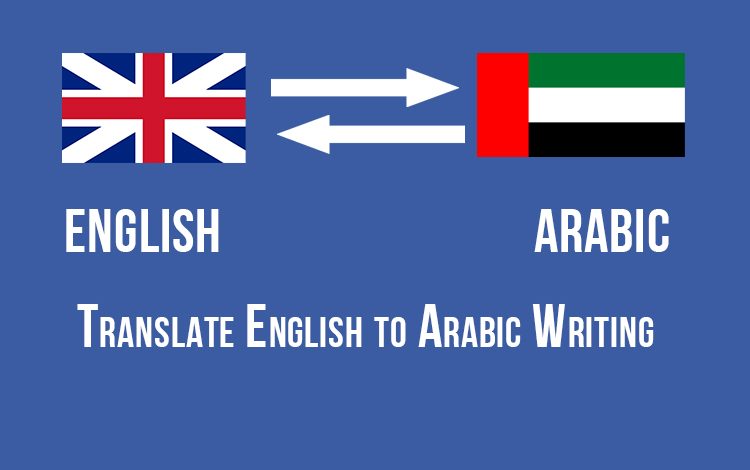
Writing in Arabic can seem intimidating at first, but if you’re just looking to translate English to Arabic Writing, it doesn’t have to be as hard as you think! Whether you’re trying to get a job in Dubai or writing a novel set in the Middle East, learning how to write in Arabic can be useful and fun. This article will give you some tips on using and writing the language correctly so that even non-native speakers can sound like native speakers.
What is the Best Way to Begin
When it comes to translate English to Arabic Writing, there are a few things you can do to ensure a successful outcome. First and foremost, it’s important to find a reputable translator who is native to both languages and has experience with the type of document you’re looking to have translated. Secondly, be sure to provide as much context as possible for the translator – this will help them understand the meaning and intention behind the words. Finally, once you’ve received the translated document back, take the time to review it carefully yourself to ensure that nothing was lost in translation. By following these simple steps, you can rest assured that your meaning will come across loud and clear – no matter what language it’s written in!
Keep in Mind Cultural Differences to translate English to Arabic Writing
If you’re looking to get your written content translated from English to Arabic, it’s important to keep in mind that some key cultural differences need to be taken into account. The Arab world is generally more formal, so avoid using colloquialisms and slang. Additionally, remember that certain topics, such as religion and politics, can be sensitive – so tread carefully! With these things in mind, here are our top tips for ensuring a successful translation – Make sure to read through the translation before finalizing anything.
- Use a native speaker of the language if possible; this will ensure accuracy and provide an authentic voice for the text.
- Don’t use idioms or expressions that may not have an equivalent in another language; this will make the meaning unclear and will confuse readers.
- Be aware of any cultural issues related to names, dates, times, titles, etc., as different cultures may use different conventions.
- Avoid translating idioms word by word; instead, try paraphrasing them or rewording them entirely so they make sense in the target language.
Consider Adding an Editorial Note to translate English to Arabic Writing
If you’re looking to translate English to Arabic Writing, there are a few things you’ll want to keep in mind to ensure a successful translation. First and foremost, it’s important to find a reputable translator who is familiar with the Arab culture and language. Additionally, be sure to communicate your goals and objectives for the translation, as this will help the translator understand your vision. Finally, remember that the translation process can take some time, so be patient! You may also need to make edits following the first draft of the translation. When all of these steps have been taken, you should be ready to start publishing your content in Arabic.
Avoid Slang or Colloquialisms
When translating from one language to another, it’s important to keep in mind that not all words and phrases will have an exact equivalent. This is especially true when it comes to slang or colloquialisms, which can be difficult to translate without losing the original meaning. For example, if you want to say it’s raining cats and dogs in Arabic you could say الشمس تقلب العقدين (the sun turns over the rods). However, if you want to say it sucks, there isn’t a translation since this expression doesn’t exist in Arabic. Instead, we would recommend using a phrase like أنا متابع لهذا (I’m following this) or يمر عليه كثير من الوقت (It takes up a lot of time).
Get Your Idioms Right
- First and foremost, you want to make sure that your meaning is conveyed accurately in the translated text. This is where working with a professional copywriter can be extremely helpful. They can ensure that your text is correctly translated and that it flows well in the new language.
- Another benefit of working with a professional to translate English to Arabic writing is that they can help you localize your content for your target market. They know the ins and outs of the Arabic market and can help you adjust your content accordingly.
- A professional copywriter will also have a good understanding of SEO (search engine optimization). This means that they can help you ensure that your translated website or blog is optimized for the Arab world, which can help you reach a wider audience. For example, many countries use Google as their primary search engine; however, Yahoo is popular in Egypt. It’s important to take this into account when translating your site so that you’re not excluding potential customers from your region!
- Furthermore, some countries might use different spellings than what you are used to – this could confuse readers if not accounted for before translation occurs.
Structure the Text Properly with Paragraphs
If you’re looking to get your English writing translated into Arabic, there are a few things you’ll need to keep in mind to ensure a smooth and accurate translate English to Arabic writing.
- First and foremost, it’s important to structure your text properly with clear paragraphs. This will help the translator understand your meaning more easily and prevent any confusion.
- Secondly, be sure to use simple language that can be easily understood by an Arabic speaker. Avoid slang or idiomatic expressions that could be lost in translation.
- Finally, remember to proofread your text before sending it off – this will help avoid any embarrassing mistakes! With these tips in mind, you’re well on your way to achieving accurate and effective Arabic translations of your English writing.
Add an Editorial Note to Point Out Arabizi Words
If you’re looking to translate English to Arabic Writing, there are a few things you’ll need to keep in mind. First and foremost, be aware of Arabizi words. These are words that are written in a mix of Arabic and Latin script, and they can often be confusing for native Arabic speakers. Make sure to avoid them when possible!
Additionally, keep in mind that there are different dialects of Arabic spoken in different parts of the world. While Modern Standard Arabic is the most widely understood, you’ll want to make sure your target audience can understand what you’re saying.
Finally, remember that translation is more than just a word-for-word substitution – it’s about conveying the meaning and tone of your original text in another language. Be sure to give yourself plenty of time and take care of your choices!
Consider Hiring a Professional Copywriter if Needed
If you’re looking to get your written materials translated from English to Arabic, there are a few things you’ll want to keep in mind. First, it’s important to find a translator who is native to both languages. This will ensure that the final product is accurate and true to the original meaning.
Additionally, consider hiring a professional copywriter if needed. They can help make sure that the finished product sounds natural and fluent in Arabic. Finally, don’t forget to proofread and edit the translated material before sending it out. With these tips in mind, you can be confident that your written materials will make a great impression in Arabic!
Read also: Difference Between Sworn and Certified Translation in Dubai



